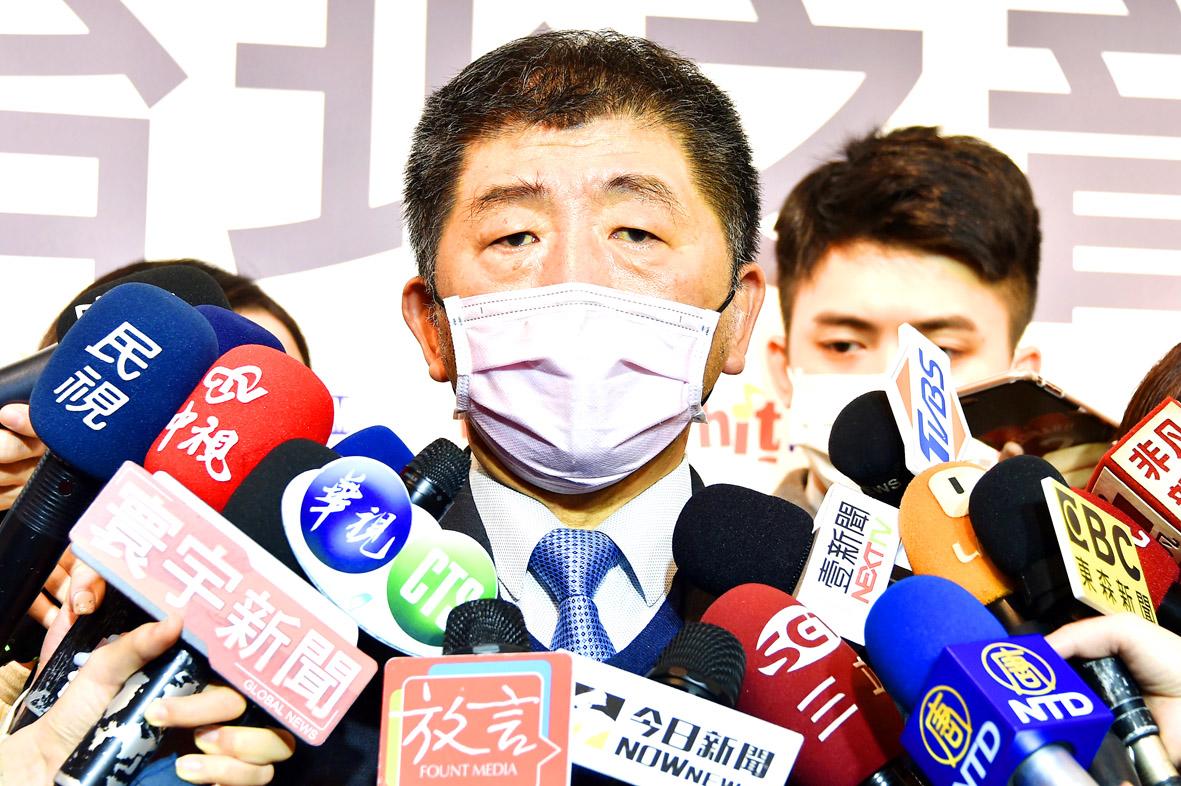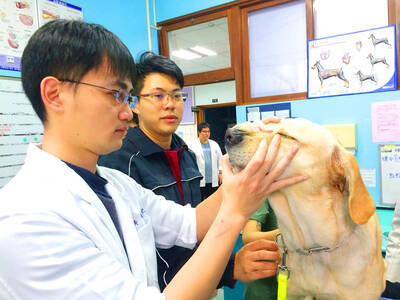176 people who came in close contact with Taiwan’s COVID-19 case No. 771 have tested negative for COVID-19, the Central Epidemic Command Center (CECC) said yesterday, rebutting rumors about possible activity history with links to the nation’s first domestic case of the novel coronavirus since April.
The contacts of the case, reported by the CECC on Tuesday, underwent nucleic acid tests for COVID-19, as well as antibody tests, with all results returning negative, Minister of Health and Welfare Chen Shih-chung (陳時中), who heads the center, told a news conference in Taipei.
More testing would be conducted if needed, he added.

Photo: Tu Chien-jung, Taipei Times
Information on individual COVID-19 cases would be announced by the center, he said, urging the public not to spread information they have obtained from other sources, as this might contravene the law.
The CECC on April 1 published guidelines for the release of information about confirmed COVID-19 cases, Chen said.
The guidelines were implemented in accordance with the Freedom of Government Information Act (政府資訊公開法), the Communicable Disease Control Act (傳染病防治法) and the Special Act for Prevention, Relief and Revitalization Measures for Severe Pneumonia with Novel Pathogens (嚴重特殊傳染性肺炎防治及紓困振興特別條例), he said.
Information on case No. 765 — the source of infection of case No. 771 — and the public places the case has visited while possibly being contagious, have been made public in accordance with the guidelines, Chen said.
As the center could identify contacts associated with the case’s other activities, it would not release that information, he said.
Case No. 765, a New Zealand pilot, was on Wednesday fired by EVA Airways over breaches of Taiwan’s COVID-19 control protocols.
EVA Air said that the pilot contravened disease prevention regulations, including the Communicable Disease Control Act, and damaged the airline’s reputation.
When media and members of the public spread COVID-19-related information, they should follow the CECC’s guidelines, Chen said.
If the release of false information results in needless panic among the public; the circulation of rumors; the infringement of others’ personal data; the undermining of the operations of institutions; or the waste of public resources, those involved may be subject to penalties or be legally liable, the center said.
Rumors that case No. 771 participated in a marathon in Taipei are false, Chen said.
The center yesterday reported no new cases of COVID-19.
The Ministry of Transportation and Communications yesterday said that it is to fine EVA Air NT$1 million (US$35,023) for its flight crew members’ breaches of disease prevention and health control measures.
As of yesterday, Taiwan had reported a total of 776 COVID-19 cases, 681 of which have been classified as imported, 635 have recovered, 134 are in hospital and seven have died, CECC data showed.
Additional reporting by Hsiao Yu-hsin and CNA

Former Czech Republic-based Taiwanese researcher Cheng Yu-chin (鄭宇欽) has been sentenced to seven years in prison on espionage-related charges, China’s Ministry of State Security announced yesterday. China said Cheng was a spy for Taiwan who “masqueraded as a professor” and that he was previously an assistant to former Cabinet secretary-general Cho Jung-tai (卓榮泰). President-elect William Lai (賴清德) on Wednesday last week announced Cho would be his premier when Lai is inaugurated next month. Today is China’s “National Security Education Day.” The Chinese ministry yesterday released a video online showing arrests over the past 10 years of people alleged to be

THE HAWAII FACTOR: While a 1965 opinion said an attack on Hawaii would not trigger Article 5, the text of the treaty suggests the state is covered, the report says NATO could be drawn into a conflict in the Taiwan Strait if Chinese forces attacked the US mainland or Hawaii, a NATO Defense College report published on Monday says. The report, written by James Lee, an assistant research fellow at Academia Sinica’s Institute of European and American Studies, states that under certain conditions a Taiwan contingency could trigger Article 5 of NATO, under which an attack against any member of the alliance is considered an attack against all members, necessitating a response. Article 6 of the North Atlantic Treaty specifies that an armed attack in the territory of any member in Europe,

LIKE FAMILY: People now treat dogs and cats as family members. They receive the same medical treatments and tests as humans do, a veterinary association official said The number of pet dogs and cats in Taiwan has officially outnumbered the number of human newborns last year, data from the Ministry of Agriculture’s pet registration information system showed. As of last year, Taiwan had 94,544 registered pet dogs and 137,652 pet cats, the data showed. By contrast, 135,571 babies were born last year. Demand for medical care for pet animals has also risen. As of Feb. 29, there were 5,773 veterinarians in Taiwan, 3,993 of whom were for pet animals, statistics from the Animal and Plant Health Inspection Agency showed. In 2022, the nation had 3,077 pediatricians. As of last

XINJIANG: Officials are conducting a report into amending an existing law or to enact a special law to prohibit goods using forced labor Taiwan is mulling an amendment prohibiting the importation of goods using forced labor, similar to the Uyghur Forced Labor Prevention Act (UFLPA) passed by the US Congress in 2021 that imposed limits on goods produced using forced labor in China’s Xinjiang region. A government official who wished to remain anonymous said yesterday that as the US customs law explicitly prohibits the importation of goods made using forced labor, in 2021 it passed the specialized UFLPA to limit the importation of cotton and other goods from China’s Xinjiang Uyghur region. Taiwan does not have the legal basis to prohibit the importation of goods